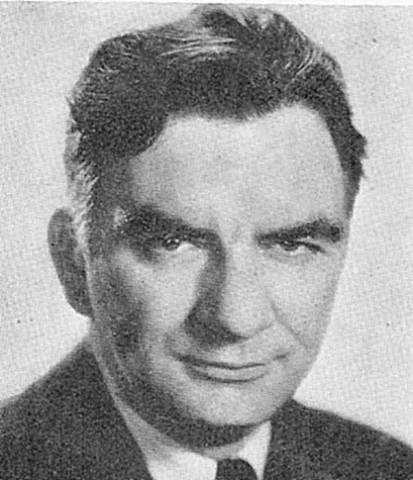James Cain (James Mallahan Cain)

Upon returning to the United States, James Cain continued working as a journalist, writing editorials for the New York World and a play, a short story, and satirical pieces for American Mercury.[1] He briefly served as the managing editor of The New Yorker and later worked mainly on screenplays and novels. His first novel, The Postman Always Rings Twice, was published in 1934. Two years later Double Indemnity was serialized in Liberty magazine. Cain made use of his love of music, particularly the opera, in at least three of his novels: Serenade, about an American opera singer who loses his voice and, after spending part of his life south of the border, re-enters the United States illegally with a Mexican prostitute; Mildred Pierce, in which, as part of the subplot, the surviving daughter of a successful businesswoman trains as an opera singer; and Career in C Major, a short semi-comic novel about the unhappy husband of an aspiring opera singer, who unexpectedly discovers that he has a better voice than she does. In his novel The Moth, music is important in the life of the main character. Cain’s fourth wife, Florence Macbeth, was a retired opera singer. James Cain spent many years in Hollywood working on screenplays, but his name appears as a screenwriter in the credits of only two films: Stand Up and Fight (1939) and Gypsy Wildcat (1944), for which he is one of three credited screenwriters. For Algiers (1938) Cain received a credit for “additional dialogue”, and he had story credits for other films.
In 1946, James Cain wrote four articles for Screen Writer magazine in which he proposed the creation of an American Authors’ Authority to hold writers’ copyrights and represent writers in contract negotiations and court disputes. This idea was dubbed the “Cain plan” in the media. The plan was denounced as communist by some writers, who formed the American Writers Association to oppose it. James T. Farrell was the foremost of these opponents. The Saturday Review printed a debate between Cain and Farrell in November 1946. Farrell argued that the commercial Hollywood writers would control the market and keep out independents. “This idea is stamped in the crude conceptions of the artist which Mr. Cain holds, the notion that the artist is a kind of idiot who thinks that he is a God, but who has only the defects and none of the virtues of a God.” In his reply, Cain argued that his opponents understood the issue incorrectly as freedom versus control. It is fear of reprisals from publishers, Cain said, that is the real cause of opposition from well-to-do writers. Although Cain worked vigorously to promote the Authority, it did not gain widespread support, and the plan was abandoned. James Cain continued writing up to his death, at the age of 85. He published many novels from the late 1940s onward, but none achieved the financial and popular success of his earlier books.
Born
- July, 01, 1892
- USA
- Annapolis, Maryland
Died
- October, 27, 1977
- USA
- University Park, Maryland



